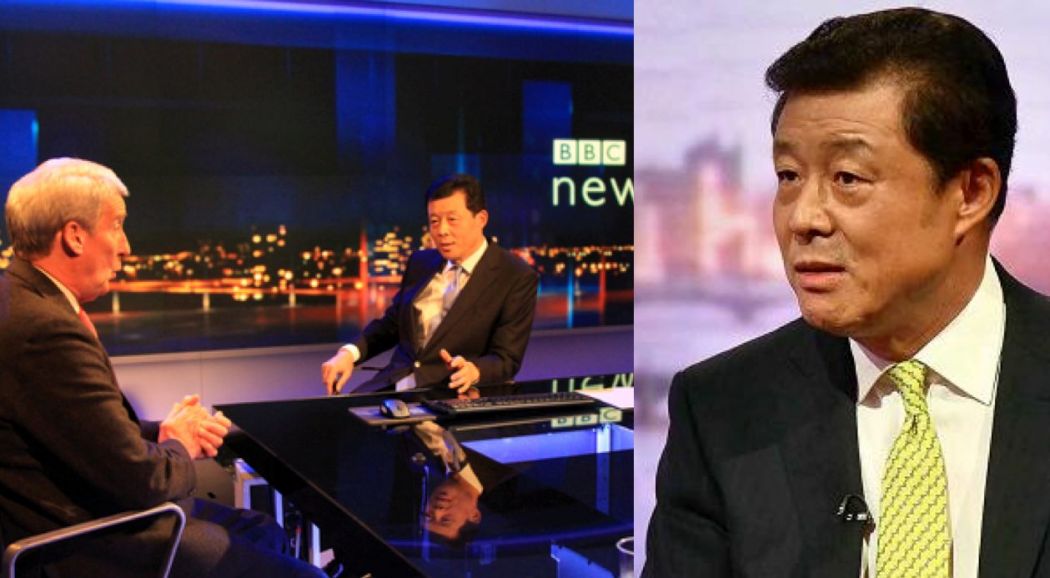By Jack Hazlewood
In an effort to boost its image overseas, the Chinese government has invested heavily in propaganda targeting people outside China, with a particular focus on citizens of Western and developing countries. According to an article published by the Wilson Center last year, estimates of the Chinese government’s expenditure on overseas propaganda each year range from US$7bn to over US$10bn, counting only subsidies to media outlets targeting non-Chinese. One doesn’t need to look any further than the UK to see how this money is spent, and the means China uses to reach the British public. Somewhat unsurprisingly, Leninist united front work does not feature.

A typical example of one of Beijing’s propaganda schemes in the UK is the ‘China Watch’ supplement, produced by state-owned newspaper China Daily, which is found once a month in The Daily Telegraph. The supplement purports to bring readers “informative and diverse stories about contemporary China’s dynamic development”. Typical articles include a report on a video (released by China’s State Archives Administration) showing sex slaves suffering at the hands of Japanese soldiers, and a deeply reassuring piece on Tibetan families moving into new houses as part of a settlement project. “Chairman Mao gave us the pastures that were once controlled by the nobility, and now his successors have given us houses”, one of them was quoted as saying. The Telegraph is paid £750,000 (over US$1 million) per year to run this supplement, the content of which is also available online.
China Daily is also responsible for distributing a free weekly newspaper called ‘China Daily European Weekly’, which is given out in certain parts of London. The publishers also seem to target office buildings. Receptionists are often approached by distributors who ask to leave some copies of the paper in lobbies and on front desks. The content is very similar to that of ‘China Watch’.

On occasion, the Chinese government also pays for full-page newspaper ads to appear in British newspapers. In October 2015, as Xi Jinping embarked on his state visit to the UK, several full-page advertisements (shown above) appeared in The Financial Times newspaper. Though the ads contained the logos of four different Chinese companies (including the ‘Poly Real Estate Company Ltd’), the fact that all four ads found that day in the FT didn’t advertise any products, were of similar design and contained the exact same text betrays the fact that these were almost certainly published on the orders of, and most likely paid for by, the Chinese government.
The Confucius Institute programme, part funded by the Chinese government, has also come under scrutiny. There are Confucius Institutes at many respected universities in the UK, but it is the Confucius Institute’s ‘Confucius Classrooms’ programme which has caused the most controversy in the UK. Last year, a Freedom of Information request by the Free Tibet pressure group revealed that some schools allowed the ‘Confucius Classrooms’ project to be taught without enquiring about the content of the programme. Critics claim that the programme, and similar programmes run by the Confucius Institute, present a favourable view of the Chinese Communist Party.

Presumably on orders from Beijing, the Chinese ambassador to the UK, Liu Xiaoming, has agreed to be interviewed several times on British television since his appointment by the then paramount leader Hu Jintao in 2009. The ambassador is often interviewed during major events, such as the occasion of Xi Jinping’s state visit, and when issues such as alleged Japanese militarism are in the limelight. The strategy of using the ambassador to put the Chinese government’s view across has not always been successful. Liu caused major controversy in 2012, when, in an interview with legendary broadcaster Jeremy Paxman (who is renowned for his aggressive interview style) he stated, “I don’t think you can call China a communist country”. In fairness to Liu, he was making the point that just because China is ruled by the Communist Party does not necessarily make it a communist country, just as the fact that the UK is ruled by the Conservative Party does not necessarily make it a conservative country. Later in the interview, he referred to China as “a socialist country”.

This is not the only exposure the British public receives to Beijing’s propaganda on TV. CCTV News, the 24-hour English-language news channel of China’s state-owned China Central Television, also airs in the UK. However, the reach of this channel is hampered by the fact that it is only available via the providers BSkyB and Freesat, services which, according to the communications regulator Ofcom, are available in fewer than 50% of households in the UK that have a TV. Although viewing figures are not provided for CCTV News on the BARB (Broadcasters’ Audience Research Board – used by the TV industry to estimate viewing figures) website, it is clear that it has not been able to replicate the success of Russia’s state-owned news channel Russia Today, which in the week of the 13th – 20th March 2016 had an average daily reach of 137,000. Despite being known by many people as being an organ for the Russian state, it is a relatively high profile (and apparently, among some people, a respected) news channel in the UK, in contrast to CCTV News. Beijing would be wise to examine why RT has enjoyed success in the UK, despite events such as Russia’s annexation of Crimea, and perhaps attempt to replicate RT’s success with CCTV News.
So there you have it: how the Chinese government chooses to spend some of its overseas propaganda budget. Despite a huge financial investment, there appear to be few to none converts to the Chinese model of government. Part of this can be put down to the largely unimaginative ways which the Chinese government uses to get its message across: it is all very conventional and uninspired. However, a more important factor in explaining the lack of success of Beijing’s overseas propaganda is the country’s dismal human rights record, which dooms any effort by Beijing to improve China’s image outside of the Middle Kingdom to failure.
Jack Hazlewood is a student from London, England. He is spokesperson and co-founder of the London-based pressure group Brits For Hong Kong, which supports self-rule in Hong Kong and campaigns for the UK government to honour the promises made to the people of Hong Kong. Follow his group on Facebook and Twitter.
